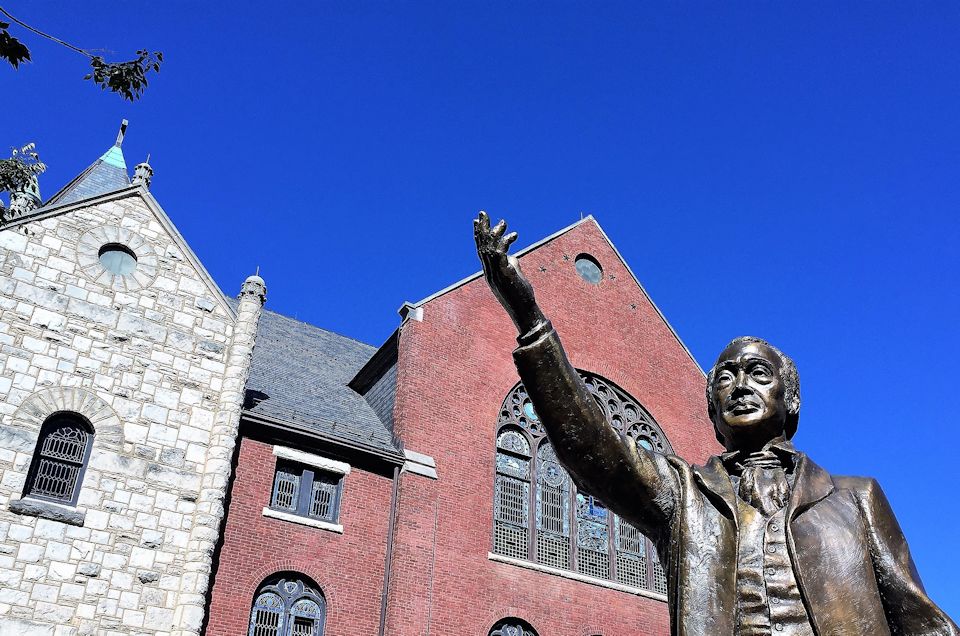The leader of the Commission on Religion & Race notes, “We of United Methodist heritage need to take care we don’t falsely presume to own the name “Methodist.“
M. GARLINDA BURTON
Commission on Religion & Race
I grew up in the former Methodist Church, so it was not unusual for congregational, conference, and churchwide media and leaders to refer to the “history of Methodism,” “Methodist women and men,” or to start a sentence with, “We Methodists believe….”
What I did NOT learn until I was an older teen was that we weren’t the only “Methodists” and that our commandeering of the Methodist moniker is at least partly rooted in institutional racism. What I have come to understand is that we United Methodists should take care not to gloss over or underplay the historical and current impact of our continued misuse of our name.
Recently, a church historian was called out by a leader of the African Methodist Episcopal Church for listing the Rev. Jarena Lee as a “Methodist” hero in an article on churchwomen history. The article listed the late Ms. Lee, an 18th-century clergywoman, along with other renowned women from United Methodism. The problem is that Jarena Lee was not a United Methodist foremother. Rather, she was an African American woman in the African Methodist Episcopal Church (AME). Ms. Lee was, in fact, the first authorized woman preacher in the AME Church.
Yes, Ms. Lee’s heritage is Methodist, but this should not be conflated with a United Methodist heritage. Ms. Lee’s denomination came into being after 18th-century Black members of our ancestral Methodist Episcopal Church (MEC) denounced the racism that defined our denomination. Because the white-led MEC refused to confront its own policies and practices of anti-Black racial discrimination and exclusion, an organized walkout of Black Methodists was led by then MEC pastor, the Rev. Richard Allen, in 1787.
This walkout led to the 1794 creation of the African Methodist Episcopal Church, which was Wesleyan in its construct and—as John Wesley preached—welcomed full and free participation of Black people.
Likewise, the African Methodist Episcopal Zion (1796) and the Christian Methodist Episcopal (1879) denominations were formed to allow Black Methodists to worship, minister, and work together free from the practices of anti-Black racism that defined the “mother” Methodist Episcopal Church and, later, the MEC South.
(As with several other largely white Christian denominations in the 18th century, Southern members of the MEC formed their own denomination because they supported the practice of enslaving Black people, while, at least in policy, the northern and western U.S. churches did not.)
So, Jarena Lee, Richard Allen, and other African Americans and other People of Color— whom many United Methodists today are quick to claim as our “forebears”—were, in fact, only able to achieve their full calling in Christ after severing ties with a white-dominant church that refused to honor their work, their calling, and their humanity.
Though these denominations share a common founder (John Wesley) and basic tenets, our paths have diverged widely because some refused to be patient with the racism that continues to cripple the white-dominant church. And we United Methodists are still coming to terms with the impact that historic and systemic racism had and continues to have on the witness, mission, and teachings of our and other Methodist/Wesleyan churches.
Therefore, we United Methodists need to take care we don’t falsely presume to own the name “Methodist” and “Methodism.” And, if we want to celebrate our common heritage, we can only do so in a spirit of confession, truth-telling, repentance, recompense, and respect.
Click here for more on how to correctly cite the history of Pan-Methodism.
—M. Garlinda Burton of Nashville, TN, is a deaconess in the UMC and Interim General Secretary of the denomination’s General Commission on Religion and Race.
Last Updated on May 25, 2021

